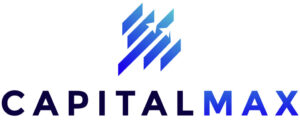
Most people with bad credit find it hard to get loans from traditional lenders, who usually have stringent requirements. These requirements are demanding for borrowers with bad credit due to foreclosures, financial problems, or declared bankruptcy. So, they typically have to find other financing alternatives. Walk with us at Capita Max as we explore some of these alternatives.
Traditional Loan Roadblocks for Borrowers with Bad Credit
Traditional lenders tend to take on less risky loan deals. Simply put, their business model requires them to be highly confident that the borrower can repay the loan. However, borrowers with bad credit communicate the opposite. A history of personal financial challenges or property issues significantly complicates the loan acquisition process with these traditional lenders.
Personal Financial Challenges
One of the main issues borrowers with bad credit face when seeking credit is their personal financial history. A low credit rating can prevent loan approval, and any history of foreclosure or bankruptcy can complicate matters further. Most traditional lenders are unwilling to risk their resources in the hands of borrowers with bad credit. They avoid dealing with people with such a poor financial history, leaving most wondering, “Where can I borrow money with bad credit?”
According to the Q1 report on household debt and credit for 2024, household debt increased by $184 billion to a cumulative total of $17.69 trillion. Also, Experian’s recent consumer credit review shows that 13% of US consumers have bad credit scores, and another 16% have fair credit scores.
A low credit score typically indicates a poor history of financial management, including late payments, a high debt-to-income ratio, and, in the worst-case scenario, maxed-out credit cards. Lenders view this as dangerous, believing that the borrower may default.
Foreclosures and bankruptcy worsen the matter, as they linger on credit records for seven to ten years and serve as a red signal to any potential lender. Upon reviewing borrowers’ records, traditional lenders reject their loan applications. Thus, forcing them to seek alternative means.
Property Issues
Property issues can also lead to loan rejection for borrowers with bad credit. Unoccupied commercial spaces, homes that need significant repair work, or rental properties that fail to meet federal requirement standards are highly unattractive and risky for conventional lenders. As such, they steer clear of them.
There is a federal standard for rental homes that protects renters’ rights and ensures compliance with housing regulations. The Department of Housing and Urban Development (HUD) sets these requirements, which include safety restrictions for electrical wiring, plumbing, fire safety, and lead paint dangers.
Any property that does not closely adhere to them is unlikely to receive financing from traditional sources, leaving borrowers with more voluntary, less stringent, but possibly more expensive alternatives.
Alternative Financing Options For Borrowers with Bad Credit
Apart from banks, borrowers with bad credit can secure loans from family or friends, investors, or private lenders. Depending on the volume of financing needed and what the loan will be used for, one of these options may be preferable to the others. Explore the pros and cons of each option below before selecting the most suitable one for your financial situation.
Friends or Family
If banks and traditional lenders deny your loan application due to a bad credit history, friends or family can help. People tend to know their friends and family well, unlike investors and private lenders, and they can leverage this knowledge to get the best loan deal possible. However, it has its own set of advantages and disadvantages.
Advantages
- Likely to have lower interest rates: Friends and family would typically offer lower rates, if any, than traditional or hard money loans, cutting down the cost of borrowing.
- Flexible terms through negotiation: The terms of loan repayment can most often be negotiated, accommodating one’s needs and circumstances. This can benefit a borrower whose earnings vary during the year or whose repayment is not scheduled monthly.
- No closing costs: Unlike regular loans, friends and family loans involve no closing costs, reducing the overall cost. The money saved can easily be used to pay a portion of the loan or make needed home improvements.
Disadvantages
- Strained relationships: A breach of agreed terms can strain a relationship, leading to friction between parties. The stress of repayment and financial discussions can lead to misunderstandings and conflicts.
- Discomfort in asking relatives for loans: Many people avoid asking friends or family for money because they believe this might build psychological, emotional, and social barriers. Proceeding to ask under such circumstances can be awkward.
- Lenders may have limited resources if repayments are missed: Friends or family may also have limited resources if the borrower does not repay the loan, and they may not be willing to employ legal enforcement as investors would, imposing an additional risk.
Friends or family may not have the needed capital: Sometimes, friends or family may not have the required amount, forcing borrowers to seek other, less satisfactory options.
Individual Investors
If borrowing from family members and friends seems cumbersome, you can consider securing financing from investors. This involves pitching your business or property to investors who might be interested. This is such a viable alternative for borrowers with bad credit because many investors currently seek opportunities to put their money
Advantages
- Faster cash availability through existing relations: Leveraging existing contacts with investors can result in faster access to funding. Investors who already know and trust you may be more eager to invest, hastening the fundraising process.
- Customized loan terms through negotiation: Terms could be discussed to meet the needs of both parties. Thus, the flexibility that might not be possible with a conventional lender may be available.
- Building partnerships for future investments: If the timing of your product is right, opportunities may open up for funding and partnerships in the future. These types of relationships bring about long-term collaboration and mutual growth.
Disadvantages
- Time investment needed in developing partnership: Developing a working relationship with angel investors is time-consuming. You will have to interact within your network, at industry events, pitch, and possibly offer some small favors.
- Potential loss of equity ownership: Investors may demand shares in your business or property, meaning less equity. This dilutes ownership, diminishing your degree of control and share of future profits.
- Sharing decision-making power: Borrowers may have to share their decision-making autonomy with the investors. In some cases, they lose their majority control. This could lead to unwanted conflicts and disagreements in management.
Private Lenders
Private lenders are an alternative for entrepreneurs and borrowers with bad credit who want to keep control of their businesses and avoid the complexities of raising money from friends, family, or individual investors. They are non-institutional companies or individuals who provide various loans (personal, real estate, and business loans) with more flexible terms than traditional lenders.
Advantages
- Maintaining control and equity of business: Private lenders support firms by allowing them to retain their autonomy and equity, whereas investors do not. The firm’s retention of control allows for full autonomy in decision-making and profit appropriation.
- Collaborative approach to determining loan terms: In most cases, private lenders collaborate with borrowers to arrive at mutually agreeable loan terms. This may be the best solution for a specific borrower’s needs.
- Avoid borrowing from friends and family: This will help you keep personal relationships out of financial matters, reducing the potential for interpersonal stress.
- A more streamlined process than individual investors: Most private lenders have established procedures for approving and disbursing loans, which speeds up approval.
- Potential for long-term lending relationships: A good relationship with a private lender will assure future financing. Repeat customers are afforded better terms and faster approvals.
- Fast turnaround times: Most private lenders have experience in certain niche markets and can reach a financing agreement faster than traditional lenders. Their specialized knowledge can be invaluable in assessing the viability of your investment.
Disadvantages
- Higher interest rates than traditional loans: Private loans carry higher interest rates than standard loans, reflecting the more significant risk involved in lending money. According to Forbes, interest rates on private loans range between 7% and 36%, far more than the interest rates of traditional lenders. The borrower must consider these costs and analyze them against the benefit of faster and more flexible funding.
- Associated fees with private loans: Some private loans can also incorporate associated fees that hike the overall cost of borrowing. Knowing these beforehand is essential so one is not shocked by additional expenses.
Find Streamlined Solutions for Real Estate Investment at Capital Max
Of all the alternatives discussed, private lenders grant loans faster and may have more experience in certain niche markets. Capital Max is one of the leading private lenders in the US. You can access real estate loans with us even with a less-than-satisfactory credit score.
We fund the most creative deals in the most alternative ways, offering a wide range of loans from $1M to $10B. We also have over 100K loan programs available. Complete a loan application and get a quote in three simple steps. Contact us today at 855-302-2748, and we can secure your next commercial loan together.
